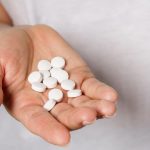
In a case that will test the U.S. Food and Drug Administration’s authority to approve or reject new vaping products, the U.S. Supreme Court said Tuesday it will weigh whether the agency was legally allowed to ban flavored e-cigarettes. In recent years, the FDA has declined to approve flavored vapes, saying they pose a health risk because they encourage young people to use e-cigarettes. But they remain widely available on the U.S. market. Meanwhile, vaping companies claim the agency got it wrong, arguing that their products can be used to help people stop smoking traditional cigarettes. E-cigarette makers have filed lawsuits around the country challenging the FDA’s decisions, NBC News reported. While the FDA has won most of those cases, it appealed to the Supreme Court after the 5th U.S. Circuit Court of Appeals issued a January ruling in favor of two vape companies seeking to have their products approved. That appeals court concluded that the FDA failed to correctly assess the companies’ requests in violation of a federal law called the Administrative Procedure Act, NBC News reported. “The Supreme Court should overturn the Fifth Circuit decision because it is misguided and, if left to stand, would cause significant harm to public health and especially to the health of our kids,” Yolonda Richardson, president and CEO of Campaign for Tobacco-Free Kids, said in a statement.… read on > read on >


















